
William John Alexander Montgomery was a New Zealand politician and merchant from Little River on Banks Peninsula. Born in London, he lived in a number of places and pursued a number of occupations before settling in Christchurch, New Zealand.
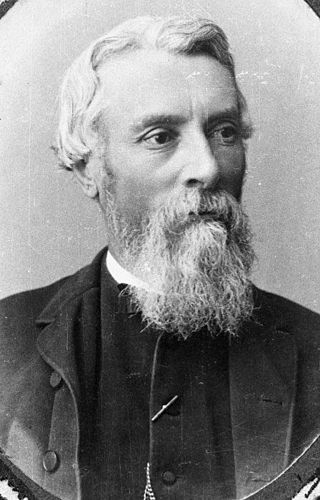
Frederic Jones was a New Zealand politician. Originally from England, he settled in the colony in 1863 for health reasons.

John Evans Brown was a 19th-century Member of Parliament in New Zealand. Born in Pennsylvania, he came to New Zealand after spending time in Australia, where he was a farmer and US Consul. He farmed in Canterbury, where he was known as "Yankee" Brown. Three of his brothers in law, through his first wife, served as his fellow Members of Parliament. He married a second time, as his first wife died young, and moved back to the United States. On his father's land in Asheville, he came to considerable wealth due to the mining of mica.
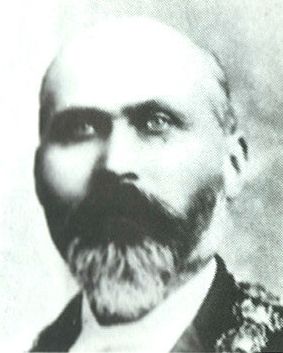
Samuel Manning was a brewer and Mayor of Christchurch in 1890.

Francis James Garrick, was a barrister and politician from Christchurch, New Zealand.
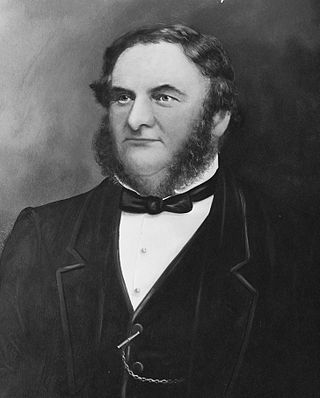
William Barbour Wilson, also known as Cabbage Wilson, was the first Mayor of Christchurch in New Zealand in 1868. A nurseryman by profession, he had large landholdings in Christchurch. His reputation was dented by a fraud conviction, and when he was subsequently elected onto the city council once more, five councillors resigned in protest.

Andrew Duncan was Mayor of Christchurch 1869–1870. From a working-class background in Scotland, he emigrated to New Zealand as a young man and became a highly respected member of the Christchurch community. He is remembered for his later work as an immigration agent in Scotland on behalf of the Canterbury Province.

Henry Sawtell was Mayor of Christchurch 1871–1872.

Edward Brenchley Bishop was the fourth chairman of the Christchurch Town Council, and seven years later the sixth Mayor of Christchurch in 1872–1873. Born in Maidstone, Kent to a wealthy family, his family lived in Belgium during his childhood. He took his father's profession as a distiller and worked in London for 21 years. His sister Susannah emigrated to New Zealand in 1849 and in the following year, many Bishop siblings followed her on the Charlotte Jane, one of the First Four Ships of organised settlement of Canterbury. With his brother Frederick, he had a large farm just south of Christchurch, and the suburb of Somerfield continues to use their farm's name. The brothers were spirit merchants in the city.
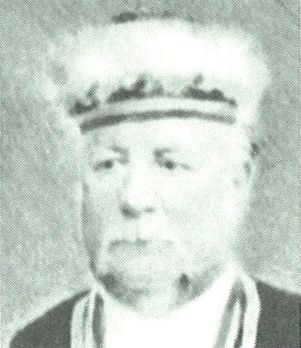
Michael Brannan Hart was the publican of the White Hart Hotel in Christchurch, New Zealand, that stood on the corner of High and Cashel Streets. It was Christchurch's first hotel. Hart, originally from Freshford, Somerset, England, was one of the first settlers of Christchurch. He was a colourful character and stood for elections to the Canterbury Provincial Council and Parliament, but was unsuccessful. He was elected onto Christchurch City Council in 1869, and was chosen as Mayor of Christchurch 1873–1874 by his fellow councillors. He gave the first chain to the Christchurch mayoral chain. He was the first mayor to wear regalia, modelled on the robes of the Lord Mayor of London. He intended to leave the robes to Christchurch City Council, but after a disagreement, he changed his will and the robes were buried with him.
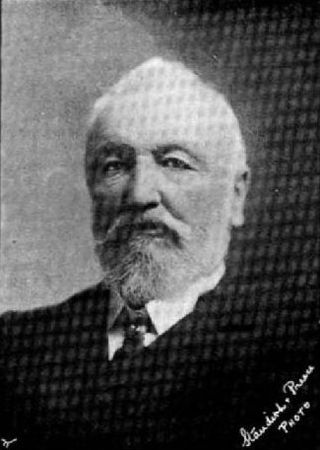
John Thomas Peacock MLC JP was a New Zealand businessman, philanthropist and politician. He came to Canterbury in 1844, several years before organised settlement started.
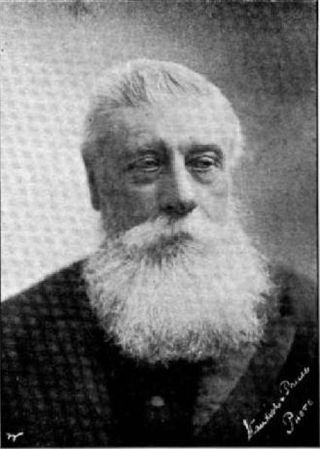
Henry Richard Webb JP FRMS was a New Zealand businessman and politician. He represented Lyttelton in Parliament for 2½ years and was a supporter of education in his later years. Born in Australia, he came to Canterbury in 1868.
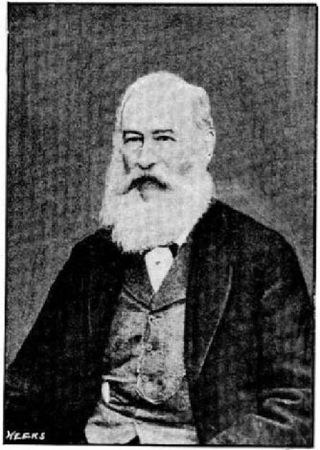
Hugh Percy Murray-Aynsley was a 19th-century Member of Parliament in Canterbury, New Zealand.
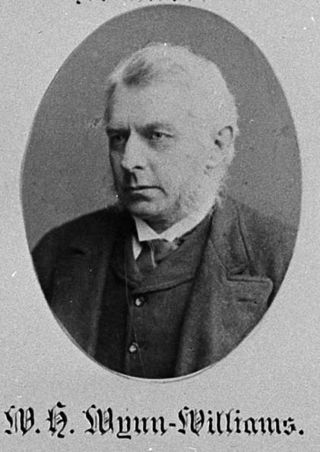
William Henry Wynn-Williams was a 19th-century Member of Parliament from Canterbury, New Zealand. He was a prominent lawyer in Christchurch.
William Barnett Armson was an architect, surveyor, engineer in colonial New Zealand. A co-founder of the Canterbury Association of Architects, and an architect to the provincial government, he established the architectural firm of Armson, Collins and Harman in 1870, which remained active until 1993. It was one of the two oldest architectural firms in New Zealand. His most important work was the Bank of New Zealand building in Dunedin.
William John Warburton Hamilton, who generally signed as J. W. Hamilton, was an administrator, explorer, and politician in New Zealand.

Joseph Veel Colborne-Veel was a journalist and educator in Christchurch, New Zealand.

Richard James Strachan Harman was trained as a civil engineer. However, in Christchurch, New Zealand, he worked as a bureaucrat, politician and businessman. He was one of the Canterbury Pilgrims, having arrived in Lyttelton, on Sir George Seymour, one of the First Four Ships. He was a business partner of Edward Cephas John Stevens and senior partner of Harman and Stevens, and together they took financial control of the Christchurch newspaper The Press from its original proprietor, James FitzGerald, over a protracted period. Harman held many important roles with the Canterbury Provincial Council and was the last Deputy-Superintendent.
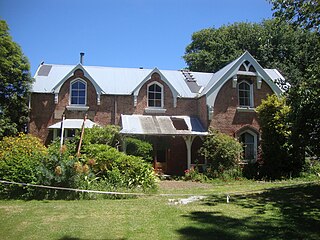
Chippenham Lodge is a heritage building in the Christchurch, New Zealand suburb of St Albans.

The Christchurch mayoral election held on 30 November 1881 was contested by German-born baker, hotel proprietor and businessman George Ruddenklau, and businessman Charles Taylor. The election was won by Ruddenklau with a small margin.




















